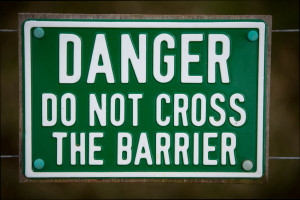5 Tips For Working With A PR Firm To Build Links
We’ve talked recently about the overlap of SEO and Public Relations, and as companies continue to shift away from old link building tactics toward more outreach-focused tactics, the landscape becomes even blurrier. While SEO isn’t taking over PR any time soon (or ever, for that matter), we are increasingly working more closely with our marketing […]
We’ve talked recently about the overlap of SEO and Public Relations, and as companies continue to shift away from old link building tactics toward more outreach-focused tactics, the landscape becomes even blurrier. While SEO isn’t taking over PR any time soon (or ever, for that matter), we are increasingly working more closely with our marketing brethren.
For search marketers, this means having a better understanding of how we can best work with PR and communications teams to get results, avoid overlap, and make the client (or your boss) happy, specifically when it comes to link building.
I spoke to a couple PR professionals to get a better idea of how they currently work with SEO teams and to get any suggestions on how PR and SEO teams can collaborate. Here’s what they had to say:
1. Be Aware Of Boundaries
It’s really important when working with other marketing firms to establish, understand and respect boundaries. Companies — especially PR firms — work very hard to build the relationships they have, and you don’t want to ruin a relationship they have by pitching a source they’ve already pitched.

According to Juliana Allen, VP at March Communications, “When any two agencies have to work together, I think there’s a natural reaction to wonder if each is trying to take away business from the other. It’s really important when you’re working with another agency on behalf of your client to clearly state upfront how you’re supporting the client and how you can work with the other agency.”
This can certainly be tricky. A couple years ago when performing an outreach campaign for a client, I asked the PR agency which sites on their media list they’d be reaching out to. The response read as follows:
“All of them. We own all those relationships.”
I knew they wouldn’t be reaching out to all 200 sites on the list, but it was my job to work with the information I had and keep the client’s best interest in mind. I couldn’t reach out to those sites myself, but I could make it clear to the client which ones were really important. I could also work on targeting sites that weren’t on the list.
Working with other agencies can be tough — but, by discussing up front what the roles will be, there’s less chance of overlap.
Tip: Ask the PR team for their media list. This will ensure you aren’t duplicating efforts, and it can also help you plan collaborative link building campaigns.
2. Stay In Touch
When multiple teams and departments are involved in the marketing process, it can be difficult to keep messaging consistent and everyone working together. By staying in touch, you can align goals, work together and get things moving.
LexisNexis Communications Director and Sword and the Script author Frank Strong notes, “Spend time with each other! Ask SEOs to review content and vice versa. Often times, each respective discipline can point out opportunities that are complementary.”
We know that everyone is busy, but at minimum, try to do the following:
Get Contact Information
During our initial discovery process, we ask our clients to tell us what other marketing firms they work, along with their contact information. We also like to have an introductory call with those people to establish a connection.
This can come in really handy when you have a question or idea and want to run it by the PR contact. Instead of waiting on the client to pass on the message, you can simply email or call them.
Have A Group Email
An old client of mine set up a group email that included their PR and SEO teams. When a press release was going out or an event was happening, everyone knew and everyone was able to add his or her input.
Share Your Goals
The most important thing you can do is share your goals. Whether it’s a keyword you’re trying to rank for or a site you’re trying to obtain a link from, make that known.
Strong notes, “I generally work with a list of 10-20 keywords and phrases SEOs want to rank for. While I don’t write copy to squeeze them in — where these fit naturally, I generally strive to include them.”
He also says that when it comes to link building, companies must work together to get the best link. “Link building is hard, and it’s only going to get harder. PR pros are the ticket to high value links.”
In order to get those high value links, companies must have a shared goal. “Those opportunities usually only materialize when these two disciplines are working together,” he said, “marketing is a team effort.”
3. Keep A Shared Calendar
When you have blog posts, press releases, news stories, events, webinars, ad campaigns, link building campaigns and more all happening at the same time, it can be a recipe for disaster if everyone isn’t on the same page.
While every company has their own internal calendar they’re working with, I also recommend asking for a shared calendar to be created.
Tip: Google docs can be perfect for this, as each agency or department can add its own upcoming initiatives in a separate tab that can be shared with the entire marketing team (or, check out this great template over on Marketing Land).
4. Make The Client Your Advocate
When egos and money are involved, there are often challenges in getting everyone to work together. While I’ve worked with some absolutely wonderful teams, I’ve also worked with people that just weren’t willing to help out without a little push from the client.
The one thing you can do to get things moving forward is to make sure the client is advocating for you.
- Ask to be involved. Do they have a quarterly meeting with their communications team? Provide a compelling reason why the SEO team should be there, as well.
- Suggest ways to collaborate. One of the best ways to make the relationship work is to put your own ego aside and suggest a way to work together. Have a fantastic link building idea? Put together a plan that involves the PR team and present it to the client. If they are behind it, they’ll be the one getting the PR team on board.
Just remember, you are both working for the betterment of the client.
5. Take The Relationship Further
Like establishing any relationship, it takes time and effort. Don’t be afraid to move beyond just client work to get to know the PR teams you’re working with.
Attend An Event They’ll Be At
There are marketing events everywhere and that means opportunities to put faces to names. Ask your contact if there are any good events they’ll be attending or simply check out the next PR Meetup or PubClub event.
Grab A Coffee
So simple, yet so rarely done. Ask your contact if they’d like to grab coffee and talk about further collaboration. There’s a ton of opportunity for SEO/PR partnerships right now, and it’s something that is worth exploring.
Share Their Company Posts
The other way to build that relationship is to help them build links and gain traction for their blog posts or articles. Follow their Twitter feed or subscribe to their blog to see what they’re posting.
By building a relationship outside of just the client, you take away that competitiveness that may exist.
Moving out of the silo can be tough, but as search evolves and SEO and PR continue to merge, it’s important we work together. As Allen says, “Agencies should ultimately look at it as a learning experience that they can take to other clients in their agency.”
Contributing authors are invited to create content for Search Engine Land and are chosen for their expertise and contribution to the search community. Our contributors work under the oversight of the editorial staff and contributions are checked for quality and relevance to our readers. The opinions they express are their own.
Related stories
New on Search Engine Land
